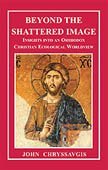What do you think?
Rate this book


Mass Market Paperback
First published May 1, 1999
“Everything is an egg, and within it lies the seed of God, calmlessly and sleeplessly active …. Within the light of my mind and the fire of my heart, I beset God’s watch – searching, testing, knocking to open the door in the stronghold of matter, and to create in that stronghold of matter, the door of God’s heroic exodus …. For we are not simply freeing God in struggling with and ordering the visible world around us; we are actually creating God. Open your eyes, God is crying; I want to see! Be alert; I want to hear! Move ahead; you are my head! …. For to save something [a rock or a seed] is to liberate the God within it …. Every person has a particular circle of things, of trees, of animals, of people, of ideas – and the aim is to save that circle. No one else can do that. And if one doesn’t save, one cannot be saved …. The seeds are calling out from inside the earth; God is calling out from inside the seeds. Set him free. A field awaits liberation from you, and a machine awaits its soul from you. And you can no longer be saved, if you don’t save them …. The value of this transient world is immense and immeasurable: it is from this world that God hangs on in order to reach us; it is in this world that God is nurtured and increased …. Matter is the bride of my God: together they struggle, they laugh and mourn, crying through the nuptial chamber of the flesh.”